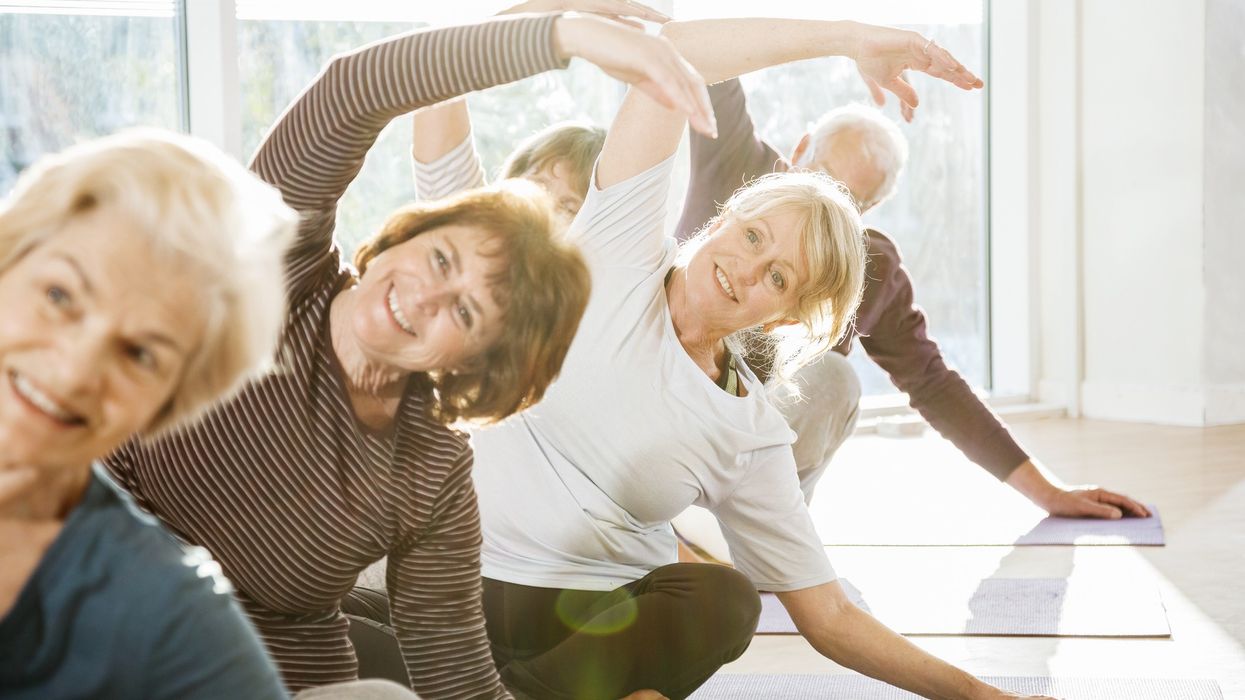Ageism is rife in our society - older people are an ASSET not a burden, blasts Jo Gideon MP

Ageism is rife in our society
|GETTY
Jo Gideon MP has called for a Commissioner for Older People and Ageing for England
Don't Miss
Most Read
The beauty industry makes billions out of telling us we need to stop looking our age. Influencers and celebrities endorse anti-ageing creams with the promise that they will reverse the physical appearance of ageing.
If that doesn’t work, you can ask your dentist for Botox injections. Zombie features are seen as preferable to looking your age.
Yet why do we fear the natural signs of growing older? The answer is that we associate ageing with physical and cognitive decline, leading to old age and death.
We talk about older people in terms of vulnerability, frailty and dependency rather than focusing on the wisdom that comes with age and the valuable contribution older people can make.
Ageism is rife in our society, and by exclusion from the workplace and generational segregation, it is condemning a large number of pensioners to loneliness and isolation, poverty and ill health.
We are part of an ageing population. In less than 20 years, 1 in 4 people in this country will be over 65. At the same time, the pension age will continue to go up, and in the foreseeable future, people will not be entitled to a state pension until they are over 70.
The WASPI women’s campaign highlighted the issue of a particularly harsh financial challenge associated with extending the pension age for women born in the ‘50s.
Yet the notion that this age group, the “younger old”, will enter a period of “putting your feet up and slowing down” has remained unchanged despite many examples of people remaining active into their 90s.
As the second oldest woman to enter Parliament for the first time in 2019, aged 67, I feel a moral imperative to speak up on this issue.
This May, I will be launching a podcast called Nothing but a Number, debunking some of the common assumptions about ageing. I’d love to hear people’s thoughts on the subject and personal experiences via www.jogideon.org.
Do you agree with me that, for those in good health, 70 is the new 50, and we have both a right and a duty to contribute positively to the economy and our society?
According to Unretirement Uprising, over half of UK workers will be over 50 by the end of 2024.
More than 42 per cent of those over 55 would consider retraining, and 82% would be prepared to take a salary drop to retrain in a new industry.
In exchange for developing a different offer for older workers who may wish to work part-time to accommodate other interests or health circumstances, employers will gain the benefit of experience and reliability.
The many community groups and charities which have depended on an army of older volunteers to run their organisations may need to adapt too, as for many older volunteers, financial pressures mean they will need to be economically active for longer, so younger generations may have to take on more volunteering roles.
At the same time, older workers will need access to bespoke training or retraining, and employers will have to cater for the different needs of an older cohort, such as hybrid or remote working for those with physical restrictions.
For a democracy to function well, we must have a good representation in government of the communities we seek to serve.
Lived experience, welcomed in the charity sector, is valued less in public service. Where other cultures recognise the knowledge and wisdom that comes with maturity, we dismiss older people as past their “best before” date.
That is why I believe the government should appoint a Commissioner for Older People and Ageing for England to ensure that policy across government departments considers the needs of our ageing population and develops a better understanding of the value older people can bring to our society.
We must also focus on how we can improve the health of the nation to ensure older people are seen as an asset, not a burden.










